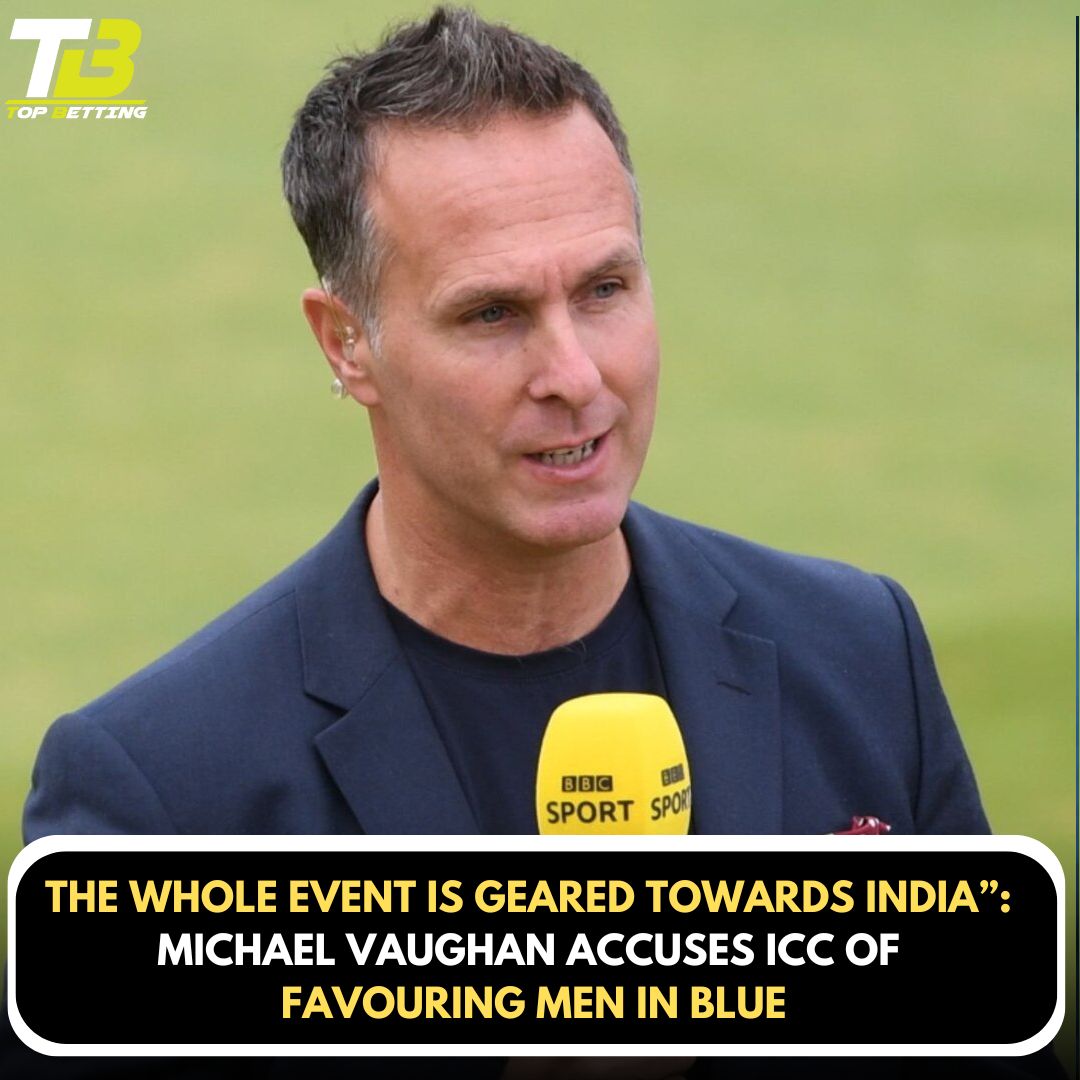
Michael Vaughan accuses ICC of favouring Men in Blue
The ongoing ICC T20 World Cup 2024 has been accused of bias by former England captain Michael Vaughan, who has criticised the International Cricket Council (ICC) for allegedly favouring India throughout the tournament. Vaughan’s scathing criticism has sparked a heated debate, with fans and experts questioning the fairness of the schedule and logistics surrounding the event.
Unfair scheduling and biased behaviour
In several posts on social media, Michael Vaughan claimed that the ICC has deliberately structured the tournament to benefit the Indian team. He argued that the first semi-final, which featured South Africa and Afghanistan, should have featured India and the Jos Buttler-led English team. Vaughan accused the ICC of “turning the whole event towards India”, which he considered “very unfair to others”.
India’s unbeaten run and preferential treatment
Vaughan’s allegations went beyond scheduling, as he pointed out that all of India’s matches in the tournament were day games, with kick-off times in New Delhi starting at 8 pm IST. He argued that this created the “unusual circumstance of different playing conditions” compared to other teams who played more matches at night.
South Africa’s dominance and Afghanistan’s downfall
The first semi-final between South Africa and Afghanistan lent credence to Vaughan’s claims, as the Proteas performed brilliantly to bowl out Afghanistan for just 56 – the lowest score in a T20 World Cup semi-final. South African pacers Marco Jansen and Kagiso Rabada, along with left-arm wrist-spinner Tabraiz Shamsi, were the architects of Afghanistan’s downfall, which exposed the technical deficiencies of the Afghan batsmen.
Implications of bad weather
Vaughan also highlighted the implications of bad weather on the semi-final matches, saying that the first semi-final had a reserve day, while the second semi-final (potentially involving India) did not have a reserve day. He argued that this would unfairly benefit India, as they would advance to the final if the match in Guyana was washed out due to rain.
Former cricketers also join in the criticism
Vaughan is not the only former cricketer to have criticised the ICC’s scheduling and treatment of teams at the T20 World Cup. Former England batsman David Lloyd also echoed Vaughan’s sentiments, expressing his concerns about the apparent bias towards India.
India are undefeated in the World Cup. They defeated Ireland, Pakistan and the USA in the group stage. Team India’s game against Canada was called off due to rain.
Rohit Sharma’s unit thumped Afghanistan, Bangladesh and Australia in the second round to qualify for the semi-finals.
England’s first match against Scotland was abandoned due to rain. They lost to Australia but managed to go past Namibia and Oman to book their place in the Super 8 stage.
The defending champions were given a hard reality check by South Africa before Jos Buttler’s unit bounced back against the West Indies and the USA to make it to the last four.
ICC’s silence and lack of transparency
Despite the growing clamour of criticism, the ICC has remained silent on the matter, failing to offer any official explanation for the scheduling decisions or the biased treatment of the Indian team. This has only fuelled the perception of bias and further eroded the credibility of the tournament.
Impact on smaller cricket nations
Vaughan’s allegations have also highlighted the challenges faced by smaller cricket nations in the global arena. Afghanistan’s defeat in the semi-finals, despite their impressive performance up to that stage, underlines the huge disparities in resources, infrastructure and development aid between cricket’s superpowers and emerging nations.
The importance of fairness and transparency in cricket
The ongoing controversy surrounding the ICC T20 World Cup 2024 has reignited a long-standing debate about the need for fairness, transparency and equal treatment in the game of cricket. As a global governing body, the ICC must address these concerns and ensure that the sport remains a level playing field for all participants.
Wider implications for the integrity of the game
Beyond the immediate tournament, Vaughan’s allegations have the potential to undermine the overall integrity of the game. If perceptions of bias and favouritism persist, this could erode public confidence and undermine the credibility of the ICC and the international cricket landscape.
Calls for reform and accountability
This controversy has led to calls for the ICC to implement reforms and increase its accountability to the global cricket community. Fans and experts alike demand greater transparency in decision-making, equitable treatment of all teams, and a clear articulation of the principles that guide the organisation’s actions.
Conclusion

As the ICC T20 World Cup 2024 progresses, the focus will remain squarely on the conduct of the tournament. Resolving allegations of bias and restoring faith in the integrity of the game will be crucial for the ICC to retain the trust and support of cricket fans around the world.











